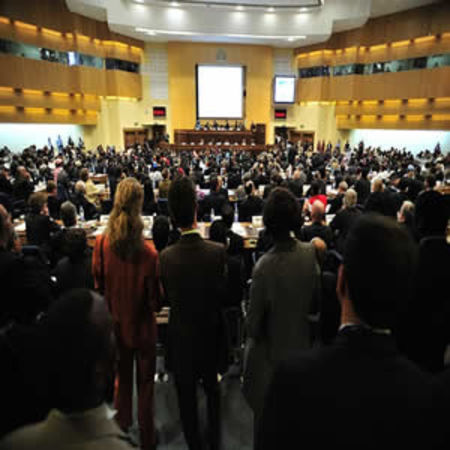There are two major cardiology conferences in the U.S. These include the American Heart Association conference which takes place in the fall and the American College of Cardiology or ACC conference which usually takes place early in the year.
There are over 30,000 cardiologists in the U.S. and approximately 7000 of them are estimated to attend these two meetings. This is not a small number and a logical question is: what happens to heart patients during these conferences? For example when a heart patient becomes hospitalised with a really acute condition when cardiologists are out of town at a cardiology meeting.
In order to answer these questions, Anupam Jena, Assistant Professor of Healthcare Policy and Medicine at Harvard Medical School along with co-authors Vinay Prasad, Dana Goldman and John Romley reviewed Medicare data. They overlaid patient data with the dates of the cardiology conferences covering a ten-year stretch. They examined patients who were admitted during those conferences and compared it with patients admitted in the three weeks before and after those conferences.
They narrowed down their analysis to patients who were in extremely bad shape. The team picked conditions where a patient did not choose to not come to the hospital because they were aware that cardiologists were away during this time. They also picked three really acute conditions: cardiac arrest, heart failure and heart attack.
The Medicare data covered tens of thousands of hospitalisations for these three acute conditions over ten years’ worth of annual cardiology meetings. They found patients were nearly identical on meeting and non-meeting days. Patients were of the same age, same sex and the same race.
The authors assumed that the decreased availability of doctors would imply that outcomes would be worse and this was their initial hypothesis. However, the findings revealed the exact opposite.
The researchers found that patients were less likely to die while the doctors were away. They also found that in non-teaching hospitals, the conferences did not make a difference. However, patients with cardiac arrest and admitted to teaching hospitals during one of the cardiology conferences were approximately 10 percentage points more likely to survive then if they were admitted during non-conference dates. Patients with heart failure and admitted in teaching hospitals were 8 percentage points more likely to survive during a cardiology conference.
For high risk heart failure, patients hospitalised on a cardiology meeting date, mortality rates were 17% at 30 days. For those hospitalised just a few days before or after a few days, mortality rates were closer to 25%.
In short, for patients with major heart conditions and admitted in a teaching hospital, there is a better chance of surviving if there's a cardiology conference going and when some of the top cardiologists are not there. While patients with cardiac arrest and heart failure were less likely to die during a cardiology conference, no such difference was observed for patients admitted with a heart attack. However, the team did find that such patients received less invasive treatments such as stents and angioplasties when the cardiologists were away. The study found nearly a third reduction in rates of angioplasty/stenting during meeting days. Thus, even with a reduction in these procedures by a third, there was no difference in mortality in heart attacks.
The full podcast is available to listen to on the Freakonomics website.
Source: Freakonomics
Image Credit: Pixabay



























